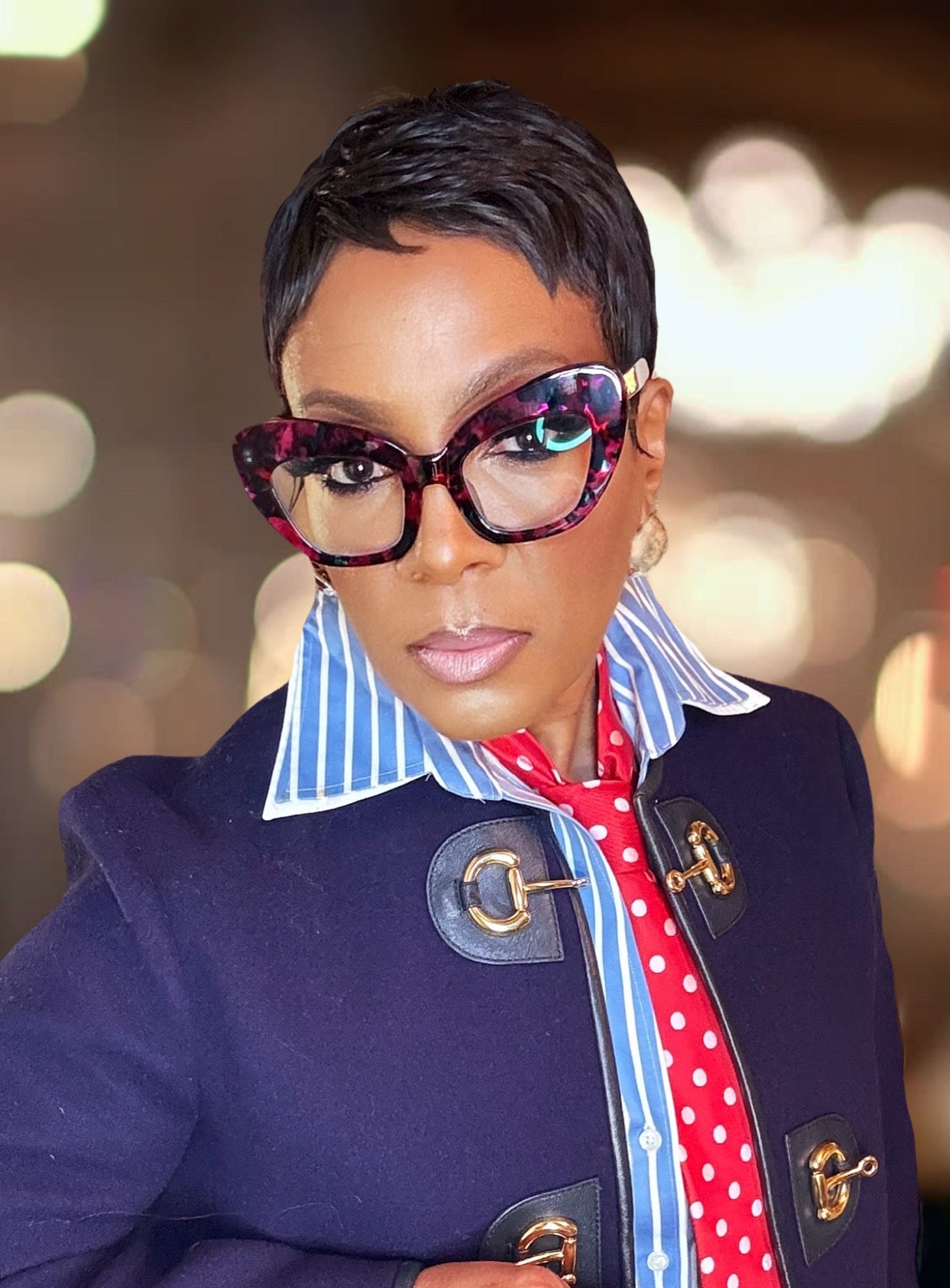The Cost of Free: Why Black Women Entrepreneurs Deserve to Be Paid
Giving isn’t the opposite of earning.
Greetings, Savvy Stylers and Substack Family!
As you all know by now, I am often intrigued by what I observe on larger social media platforms. Today’s offering is based on a recent observation regarding what I deduced as this notion and expectation, of some, for me, and others who look like me, of always “paying it forward for free.” As an entrepreneur, I thought I would share and lean into this contradiction as a Black woman. Please let me know your thoughts in the comment section at the end of the blog.
“My wisdom was paid for in full. With tuition. With time. With tears. And still—I give. But let’s be clear: generosity should never be confused with obligation.”
She couldn’t have been more than 25 or 30. She was passionate, firm, and confident. Her message?
“If you have knowledge or skills and you’re charging others to learn from you—especially the next generation—you’re doing it wrong. It should be free.”
It stopped me in my tracks.
Not because I hadn’t heard that sentiment before—but because it was cloaked in moral righteousness, missing the nuance of lived experience, sacrifice, and hard-earned wisdom.
As a Black woman entrepreneur with four university degrees and decades of experience, I have given generously—through mentorship, volunteering, and even here on Substack, where I pour out knowledge without placing it behind a paywall. And yet, this moment crystallized a larger question that deserves honest interrogation:
When did we begin to believe that the labor, expertise, and intellectual property of Black women should come without compensation?
The Myth of “Free” and the Reality of Cost
There’s a contradiction we don’t talk about enough. We celebrate “Black Girl Magic” and uplift Black women as trailblazers and innovators, yet we balk at paying for their services, consulting, coaching, and leadership.
We want the sauce—but don’t want to pay for the recipe.
“We keep asking Black women to donate their brilliance. What if we stopped demanding free and started writing checks?”
Let’s be clear: sharing knowledge is not antithetical to community uplift. But the idea that entrepreneurship must be sacrificed on the altar of charity is uniquely weaponized against Black women.
According to Harvard Business Review, Black women are the fastest-growing group of entrepreneurs in the U.S. but also the least funded. Despite their resilience and creativity, only 3% of Black women-owned businesses make it past the start-up stage.
Why? Systemic barriers, underfunding, and most of all—undervaluing.
“We can’t build legacy if we’re expected to give everything away for free. That’s not community—it’s exploitation.”
Charitable Giving vs. Sustainable Entrepreneurship
There’s room for both.
I believe deeply in paying it forward. That’s why I mentor emerging leaders, offer pro bono guidance, and provide free, accessible content. But giving isn’t the opposite of earning. And we must stop forcing Black women to choose between impact and income.
We must also confront a rising entitlement culture that insists access to someone else’s brilliance is a birthright. Knowledge is powerful. But power has always had a price.
“I’m not anti-giving. I’m anti-exploitation. Know the difference.”
Why Black Women Entrepreneurs Matter
Beyond the personal, the presence of Black women entrepreneurs is an economic and cultural imperative.
According to the 2022 American Express State of Women-Owned Businesses report:
• Black women-owned businesses generated $98.3 billion in revenue in 2021.
• 17% of Black women are starting or running new businesses, compared to just 10% of white women.
• And yet, less than 1% of venture capital funding goes to Black women founders.
These numbers paint a sobering picture. We’re creating and pushing forward, but we are doing it without equitable access to capital or respect for the value of our contributions.
That’s why entrepreneurship isn’t just about making money—it’s about sovereignty. Ownership. Legacy.
The Balance We Must Strike
We can be generous and still build generational wealth. We can pour into others and still protect our intellectual property. We can believe in community and still value capitalism that doesn’t exploit.
But we must draw the line when giving is expected, demanded, or morally manipulated.
Final Reflection
To the young woman who prompted this blog—I see your passion. I honor your desire to ensure knowledge flows freely to future generations. But let’s also honor the labor behind that knowledge.
Let’s stop romanticizing sacrifice when it’s expected of Black women—and start creating cultures that respect our worth.
Because we can’t build the future if we’re constantly being asked to bankrupt ourselves for it.
Call to Action
To my fellow women entrepreneurs—continue giving, continue building, and above all, continue charging. Your wisdom is worthy of compensation.
And to those on the receiving end of our brilliance—invest in us. Not just emotionally but economically.
Let me know your thoughts.
Thoughtfully yours,
Sharon
Sharon L. McDaniel, PhD, EdD, MPA
“Respect the labor. Write the check. Repeat.”





This is such an important message. As a white woman I can’t claim to know the experience of Black women, but I do know that women have undersold themselves for years. I learned an important message when I once lost business to a less qualified male who charged more. Turned out that by underselling my services I was unwittingly sending the message that I was less valuable. So I completely agree- be generous but also claim what you’ve rightfully earned!
Your posts are such a gift; I’m grateful to you.